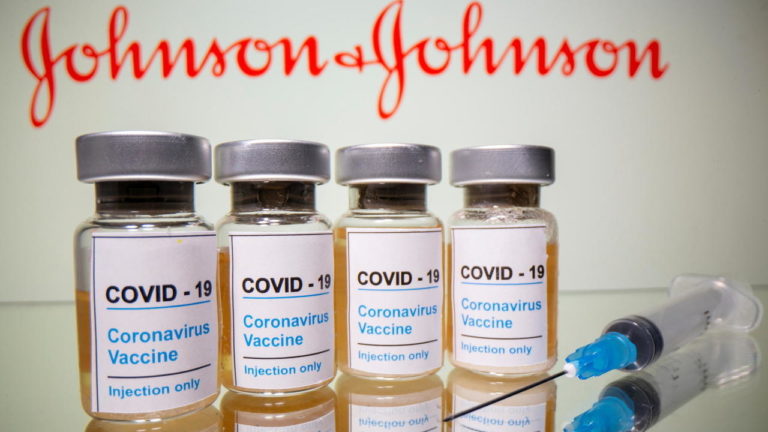South Africa on Monday announced it would shortly resume using Johnson & Johnson anti-Covid vaccines, just two weeks after the jab was suspended to vet risks over blood clots.
The vaccine will be included in South Africa’s much-delayed anti-Covid vaccination campaign from Wednesday after being given the green light by SAHPRA, the country’s health watchdog.
In a statement on Monday, Health Minister Zwelini Mkhize said; ‘It has since been established there is a one in a million chance of getting the clot after the vaccine and that it appears that women between the ages of 18 and 48 years old are particularly at risk’.
‘With such a low probability of developing a clot, all the regulators across the world have recommended the continued use of Johnson and Johnson’
Read Also: Johnson & Johnson To Pay $2.1bn Over Cancer-Causing Talcum Powder
Many hopes have been staked on the Johnson & Johnson vaccine to roll back the pandemic in developing countries, as it is just a single-shot jab that does not need to be kept at ultra-low temperatures.
The vaccine was briefly put on hold after a handful of Americans developed blood clots after taking Jabs.
According to US data presented Friday, of 3.9 million women who got the Johnson & Johnson shot, 15 developed serious blood clots and three died.
The majority of the confirmed cases, 13 of the 15, was aged under 50 years old. There were no reported cases among men.
The resumption of the Johnson & Johnson vaccine will target health workers in particular.
The authorities say they have purchased enough doses of the vaccine, as well as of Pfizer, to immunise at least 45 million people.
The deadline for achieving this has not been recently given. The government previously set a target of March 2022.
South Africa earlier this year purchased AstraZeneca vaccines and then sold them to other African countries following fears that it would be less effective against a local variant of coronavirus.
AFRICA DAILY NEWS, NEW YORK










